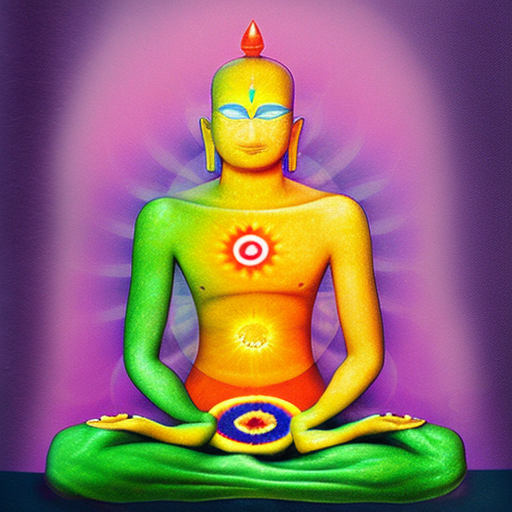Meditation is a powerful practice that allows us to connect with our inner selves, promote balance, and heal our bodies and minds. One common technique used in meditation is focusing on the chakras, the energy centers within our bodies. But how long should we spend meditating on each chakra? Let’s explore.
Understanding the Chakras
Chakras are energy centers located along the spine, starting from the base and moving upwards to the crown of the head. There are seven main chakras, each corresponding to different aspects of our physical, emotional, and spiritual well-being.
- Root Chakra: Located at the base of the spine, it represents stability and grounding.
- Sacral Chakra: Located below the navel, it governs creativity and emotions.
- Solar Plexus Chakra: Located above the navel, it relates to personal power and confidence.
- Heart Chakra: Located in the center of the chest, it represents love and compassion.
- Throat Chakra: Located at the throat, it governs communication and self-expression.
- Third Eye Chakra: Located in the middle of the forehead, it relates to intuition and perception.
- Crown Chakra: Located at the top of the head, it represents spiritual connection and enlightenment.
Time Allocation
When it comes to meditating on each chakra, there isn’t a fixed time that works for everyone. It’s important to listen to your body and intuition. Some people may find a few minutes of focused meditation on each chakra sufficient, while others may need more time to experience its benefits fully.
“The key lies in finding a balance that allows you to anchor your awareness on each chakra without feeling rushed or restless.”
As a general guideline, consider dedicating at least 5-10 minutes to focus on each chakra during your meditation practice. This duration allows ample time for introspection, alignment, and rejuvenation. However, feel free to adjust the time based on what feels right for you. Remember, meditation should be a calm and enjoyable experience.
Signs of Imbalance
A well-balanced chakra system leads to a sense of harmony and overall well-being. However, when a chakra is blocked or imbalanced, various physical, emotional, or spiritual issues may arise. It is during these times that spending more time on the affected chakra during meditation can be beneficial.
For instance, if you feel emotionally drained or experience difficulty expressing yourself, dedicating additional time to the throat chakra may help alleviate these imbalances.
Listen To Your Body
Ultimately, the best approach is to tune in to your body and heed its messages. As you progress through your meditation practice, you may naturally feel drawn to spend more time on a particular chakra or sense when it’s time to move on. Trust these instincts and let your intuition guide you.
In conclusion, there isn’t a fixed duration for meditating on each chakra. It’s about finding the right balance, listening to your body, and giving yourself the time and space for self-reflection, healing, and growth. Whether you allocate 5 minutes or 30 minutes to each chakra, what matters most is the intention and presence you bring to your practice.




Great question!
An interesting question worth exploring!
This is so helpful!
Good advice!
It really depends on your personal meditation practice and goals. While there is no set rule for how long you should meditate on each chakra, it is generally recommended to spend at least a few minutes focusing on each one during a meditation session. This allows you to fully immerse yourself in the energy and qualities associated with each chakra.
Some practitioners prefer to spend equal amounts of time on each chakra, while others might choose to focus more on specific chakras that they feel need more attention or balancing. It is important to listen to your intuition and follow what feels right for you.
In terms of the duration, it can be helpful to start with shorter sessions of about 5-10 minutes for each chakra and gradually increase the time as you become more experienced and comfortable. This allows you to build endurance and deepen your practice over time.
Additionally, it’s important to remember that chakra meditation is not solely about the duration, but also about the quality of your focus and intention. You can deeply connect with a chakra in a short amount of time if your attention is fully engaged and your intention is clear.
Ultimately, the most important aspect of chakra meditation is to create a consistent and regular practice that works best for you. It is through this dedication and commitment that you can experience the transformative benefits of chakra meditation and cultivate a deeper connection with your energy centers.